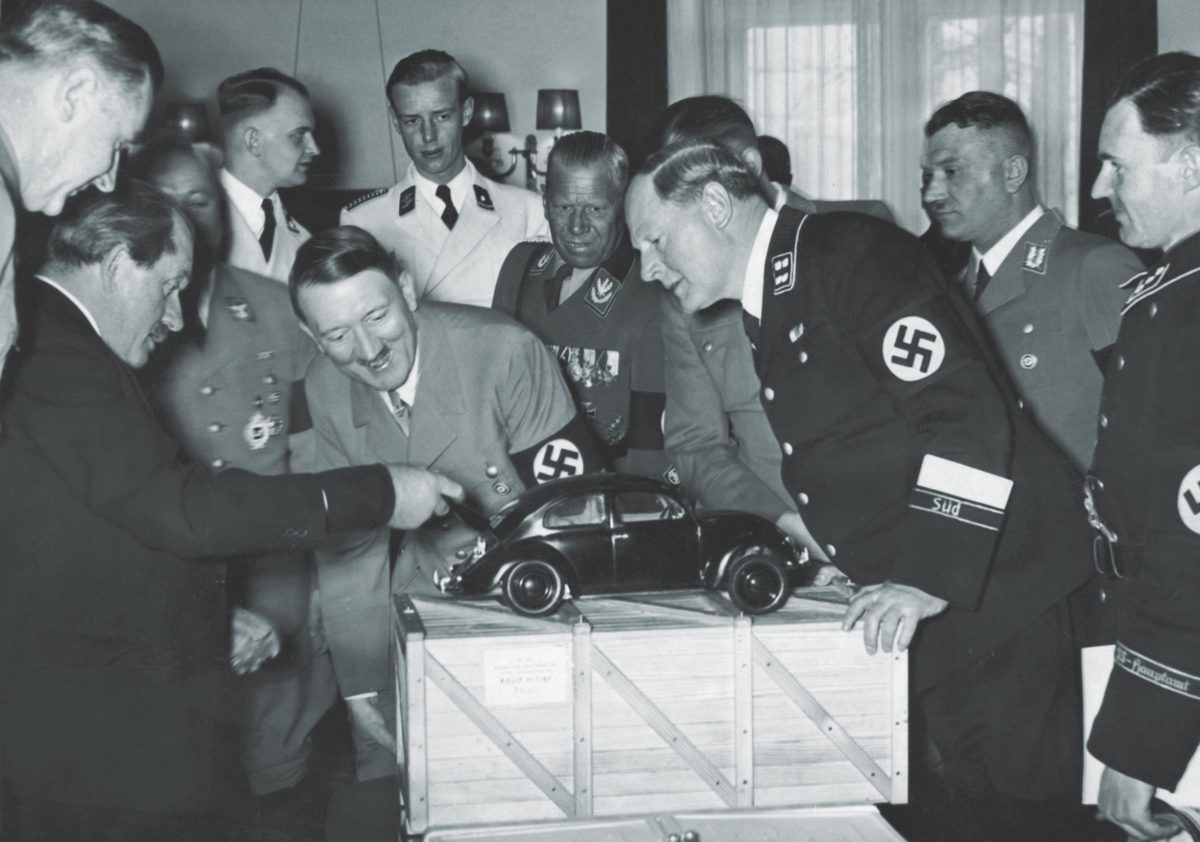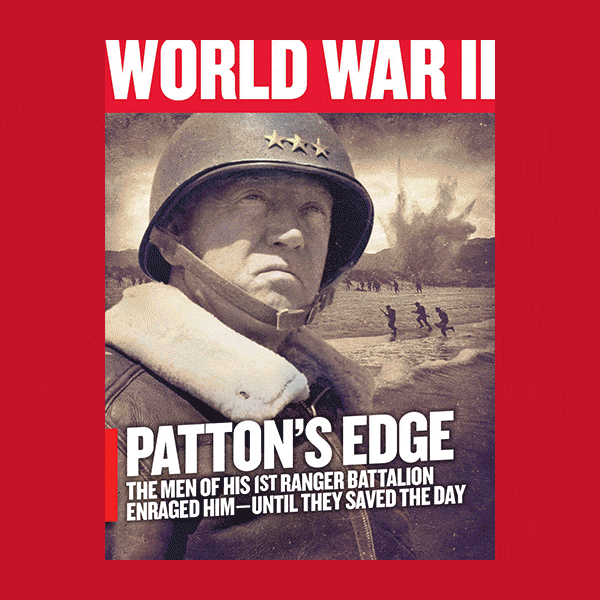NAZI BILLIONAIRES
The Dark History of Germany’s Wealthiest Dynasties
By David de Jong. 400 pp. Mariner, 2022. $28.99.
What is left to say about the Nazis? They lost World War II some 77 years ago, their country occupied and their leaders either dead or in prison camps, waiting to be tried and judged. The Germany that emerged from the ruins has generally led the way in reckoning with its past, atoning for the Third Reich’s epic crimes through measures that include paying reparations to Jewish survivors. Three generations of historians have weighed the country’s guilt. What aspects of Germany’s dark history still need to be illuminated, and why now? Investigative financial journalist David de Jong provides a clear answer in Nazi Billionaires, a fast-paced, eminently readable, and well-researched book on the German business dynasties that have flourished since Hitler’s reign without ever fully accounting for their misdeeds.
A 1985 work, German Big Business and the Rise of Hitler by late Yale University professor Henry Ashby Turner Jr., has long been the standard text on Hitler’s early relationships with captains of German industry. According to Turner, these men did not do much to help Hitler become chancellor in January 1933. This quickly changed, however, once Hitler and Hermann Göring personally convoked the business elite and extorted massive campaign contributions for the March 1933 election that cemented the Führer’s power. In Nazi Billionaires, De Jong carries the story from that time onward, investigating well-known German companies like the automaker Porsche and food manufacturer Dr. Oetker and how they profited from the ensuing war, becoming “Nazi billionaires.” He believes that too many existing companies still qualify for that title, something that bothers him personally due to his Dutch upbringing and Jewish heritage.
De Jong tells tales of greed, opportunism, and denial. One businessman whom Hitler and Göring summoned in February 1933 was Günther Quandt; described by De Jong as “a textile producer turned arms-and-battery tycoon,” Quandt made no end of money supplying uniforms to the German army in World War I. In the 1920s he married a younger woman, Magda Ritschel. Their union lasted eight years and produced one son—after which Magda married Nazi propagandist Joseph Goebbels, with Hitler serving as best man.
For Quandt, this made for an ambivalent relationship with Germany’s new leaders. But business was all-important to him, and he accommodated himself by joining the Nazi Party. He added to his wealth during the war by gobbling up Jewish-owned companies, as well as captive Belgian, Polish, Croatian, and Greek industries, and benefited from Nazi forced labor. Quandt’s heirs today are vastly wealthy, controlling, among other holdings, 47 percent of BMW.
Postwar, Quandt successfully portrayed himself as a victim, forced to collaborate with Goebbels due to family ties. He escaped punishment, and his fortune remained largely intact. At Quandt’s funeral in 1954, a Deutsche Bank executive praised him for “never submitting servilely to the overbearing state.” In 1941, the same man had praised him for becoming a Wehrwirtschaftsführer—a leading supplier of munitions who believed in Germany and Hitler.
Perhaps the best-known of De Jong’s subjects is Ferdinand Porsche, the brilliant self-taught engineer born in 1875 who truly was a pioneer in the auto world. In 1933 Porsche sent Hitler a fawning telegram that led to enthusiastic cooperation between the two. Both Porsche and his son Ferry willingly became members of the SS, as well as the Nazi Party. They championed the idea of a people’s car, or “Volkswagen,” which Porsche would go on to build. In 1938 Hitler presided over the groundbreaking for a giant factory at Wolfsburg that is, even today, home to the Volkswagen Group.
The need for military production intervened before many VWs could be produced, and Porsche switched to making jeeps and tanks for Hitler—both enormously profitable undertakings, in part thanks to slave labor from SS concentration camps. Along the way Porsche shed the firm’s Jewish cofounder, racecar driver and entrepreneur Adolf Rosenberger, buying out his shares at a fraction of their worth. Porsche and son were both arrested for war crimes after World War II ended. Released within six months, Ferry was able to dedicate himself to saving the company’s assets (and securing his father’s release after just 20 months). He created the modern Porsche brand in 1948, which today is interlocked with the Volkswagen Group.
Bringing these stories, and others, up to date, De Jong reflects on his subjects’ attempts at addressing the past. Following a series of German exposés, beginning with the documentary film The Silence of the Quandts (2007), the Quandt, Oetker, and Porsche families all commissioned historical studies of their firms. But, as De Jong points out, the Quandts sidestepped tough questions and instead created a foundation dedicated to the anodyne goal of “good business leadership.” The Porsche factory in Stuttgart today sports a plaque acknowledging the contributions of slave labor. But the firm has never fully addressed its “Aryanization” in the 1930s.
Even worse, De Jong implies, are the Fincks, secretive descendants of wartime bankers who have made substantial contributions to conservative and far-right causes like Alternative für Deutschland, a rapidly growing anti-immigrant political party that’s been labeled neo-Nazi. He laments that “as the…memory of the Third Reich fades, an increasingly mainstream and brazen reactionary right is brutalizing the progressive ideals of postwar Germany.” One way to slow the trend, De Jong believes, is to air the misdeeds of Nazi billionaires, as he has done
in this worthy book.
—Historian Nicholas Reynolds began his writing career with Treason Was No Crime (1976), a book about the German resistance to Hitler.






